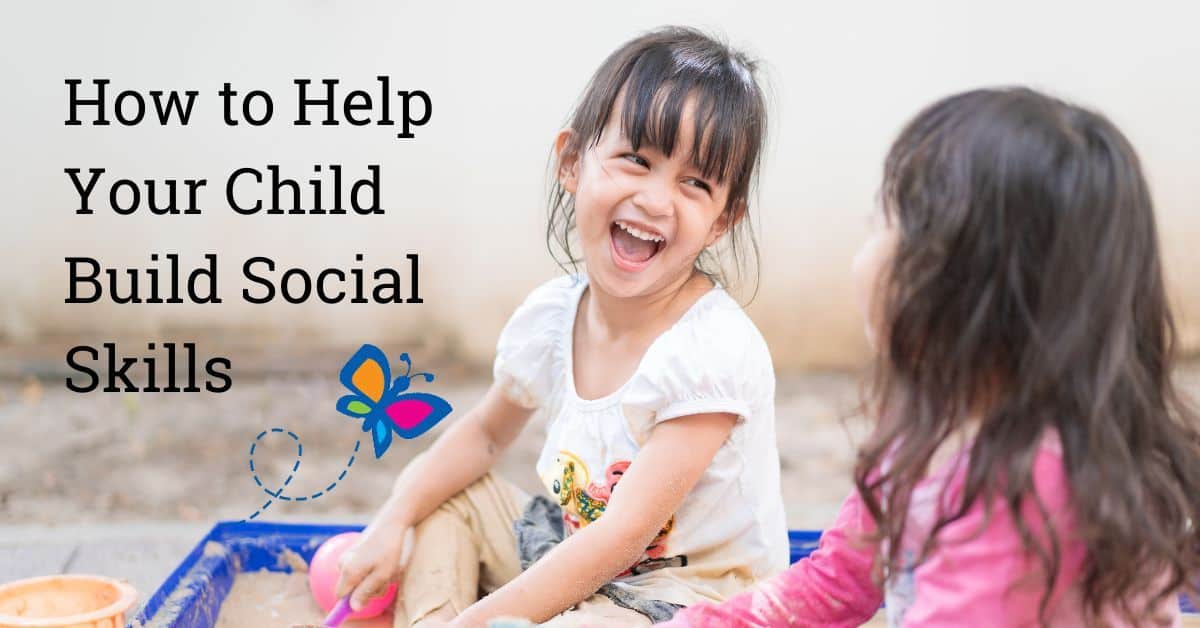
For one reason or another, some children do not develop social skills as quickly as others. They may earnestly seek peer relationships and, having endured rebuffs, if not downright cruelty, retreat to the safety of home, family, and their own company. There is probably nothing as painful for a parent as the rejection of their child. You may pick your child up from school and see them sitting by themself, huddled in a corner, staring at their lunch bag. You ask them how they’re doing, and they mumble something about feeling alone. It’s an unfortunate moment for any parent.
Parents should take the long view of social problems and map out a plan to solve them as carefully and thoughtfully as they would consider academic or health problems. There are guidelines that, if followed, will help these kids if their parent is willing to take the time and initiative.
Helping your child develop social skills is essential to prevent them from becoming socially isolated. To start the process, observe them closely. Do they look you in the eye when you start a conversation? Are they easily distracted, or do their eyes light up with excitement? Are they nervous when talking with their friends?
You can use these clues to understand why your child is experiencing social challenges. Take the time to observe and become more aware of their behavior and how they respond to others. Then, it’s time to get to work.
What can you do to help your child build social skills and become more comfortable in new situations? Here are some ideas:
1. Encourage your child to maintain eye contact. Eye contact helps people to feel more comfortable. It also enables them to convey their personalities.
- Motivating your child to make eye contact helps them and others to feel more comfortable in social settings. When kids feels insecure in a new situation, it can make a world of difference.
2. Teach your child to ask the right questions. Too many children, especially those who lack social skills, worry that they’ll say the wrong thing. However, questions are great for starting and holding conversations.
- You can teach your child question-answering skills by pretending to be a reporter. Act as if you’re interviewing them about their game collections or a book they’re currently reading, then swap roles. You’ll notice their confidence skyrocket.
3. Discover your child’s interests. Children have varied interests, but you may find that they have one favorite hobby in particular. Take an active role in your child’s interests. Invite a friend or two to join them in one of their favorite activities.
4. Understand your child’s limits. Everyone socializes in different ways, and kids are the same. Introverts may prefer chatting over text, while extroverts prefer face-to-face contact.
- Avoid trying to force your way of doing things onto your child. Let them choose how they interact with their peers through live conversations, online chats, or texting.
5. Teach your child the value of listening. The ability to listen effectively is one of the most important aspects of social interaction.
- Whether engaging in a group discussion or striking up a conversation with a friend, your child needs to be mindful of how they listen. Listening to teachers, for instance, is integral to getting the most out of education at school.
6. Play turn-based games. Turn-based games require players to take turns rather than move simultaneously.
- Waiting and being patient are valuable social skills that children learn through playing these games. The skills your child learns from this type of play will set the foundation for social success throughout their life.
7. Teach your child to respect personal space. Some children tend to come physically close to others when they’re talking.
- While there’s no harm in this, your child should understand that it’s impolite to invade other people’s personal space. Being able to listen and speak to others respectfully is a critical skill.
Social skills are essential to a happy, fulfilling life. It’s never too early to start teaching your child social skills. It might be a challenge initially, but with patience and perseverance, eventually, your child will thank you. And remember, social interaction is an important life lesson for your child.


